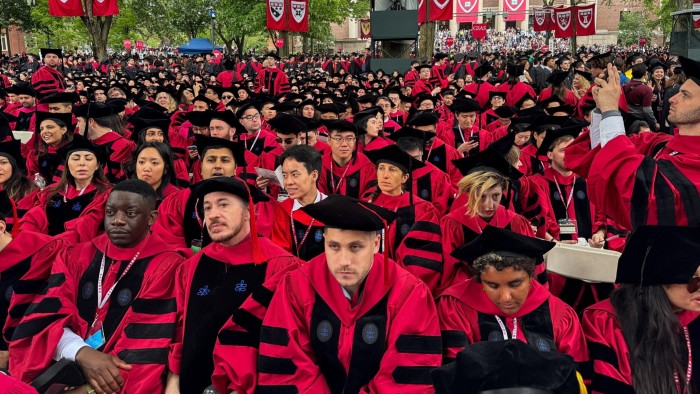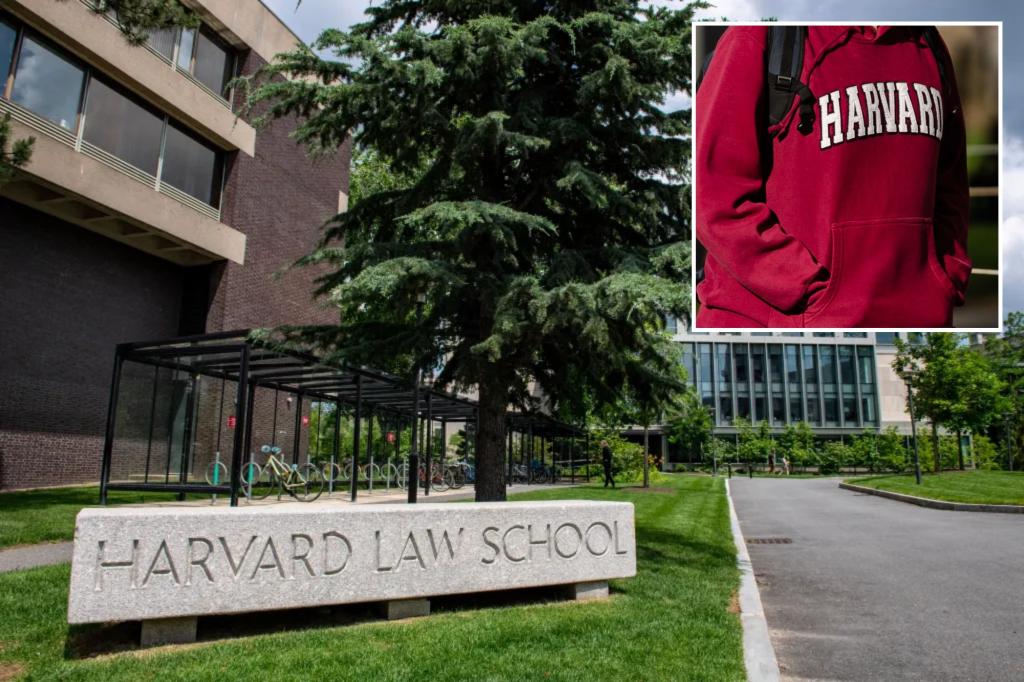Harvard’s Strategic Moves: Partnering with Universities to Support Students Affected by Visa Restrictions
In a proactive response to the visa restrictions imposed by the Trump administration, Harvard University is taking significant steps to safeguard the educational futures of its international students. The esteemed institution is currently in discussions with various universities to create a network of support aimed at providing refuge for students adversely affected by changing immigration policies.
The Context of Visa Restrictions
Since the onset of the Trump administration, numerous visa restrictions have been implemented, targeting international students and professionals. These changes have created an atmosphere of uncertainty for many students who rely on student visas to continue their education in the United States. The restrictions have not only limited the number of visas issued but also increased scrutiny on applications, leaving many students in precarious situations regarding their academic pursuits.
Harvard’s Initiative
Harvard’s response to these restrictions underscores its commitment to diversity and inclusion in education. The university is exploring partnerships with other higher education institutions to establish a framework that allows affected students to continue their studies without interruption. This initiative is designed to ensure that international students can find educational opportunities, even if they face visa hurdles.
Collaboration with Other Universities
As part of this initiative, Harvard is reaching out to universities across the United States and beyond. The discussions focus on creating exchange programs, shared resources, and supportive environments for students who may be forced to leave their current programs due to visa issues. Some potential strategies include:
- Joint degree programs: Partnering with other universities to allow students to complete their degrees across institutions.
- Online learning opportunities: Developing online courses that international students can access regardless of their physical location.
- Financial aid collaborations: Sharing resources to provide scholarships or financial support for students facing financial strain due to visa restrictions.
- Advisory services: Offering legal and counseling services to help navigate the complex immigration landscape.
Impact on Students
The implications of Harvard’s initiative are profound. For many international students, the chance to continue their education without the threat of visa restrictions allows them to focus on their academic goals rather than on immigration status. This strategic move not only helps retain talented individuals within the educational system but also enriches the learning environment for all students by fostering a diverse and inclusive community.
Community and Institutional Support
Harvard’s initiative has garnered support from various stakeholders, including faculty, alumni, and advocacy groups. Faculty members have expressed their commitment to ensuring that all students, regardless of their immigration status, have access to quality education. Alumni are also stepping up, offering mentorship and financial support to students in need.
Furthermore, advocacy groups are praising Harvard’s approach, viewing it as a critical step in the fight for equitable education. These organizations emphasize the importance of educational institutions taking a stand against restrictive immigration policies, advocating for a system that values international students as vital contributors to the academic community.
The Road Ahead
As Harvard moves forward with its plans, the university is aware of the challenges that lie ahead. The political landscape surrounding immigration policies remains volatile, and the future of visa regulations is uncertain. However, Harvard’s proactive measures signal a commitment to supporting its international student body, regardless of external pressures.
The university’s leadership is optimistic that by collaborating with other institutions, they can create a robust support system that not only addresses immediate concerns but also advocates for long-term changes in immigration policies. Harvard aims to set a precedent for other universities to follow, reinforcing the idea that education should be a universal right, accessible to all.
Conclusion
In conclusion, Harvard University’s strategic partnership initiative represents a significant step toward protecting international students affected by visa restrictions. By collaborating with other universities and offering innovative solutions, Harvard is demonstrating its commitment to maintaining an inclusive educational environment. As discussions progress, the hope is to create a model that not only addresses current challenges but also paves the way for a more equitable future in higher education.
See more TED Talks World


